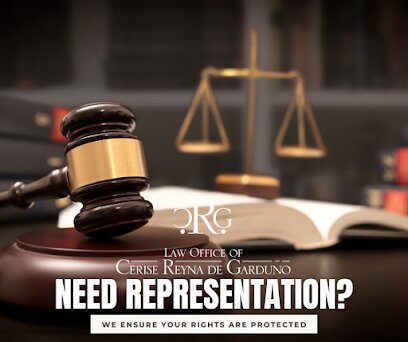Best Child Custody Lawyers in United States
Share your needs with us, get contacted by law firms.
Free. Takes 2 min.
Free Guide to Hiring a Family Lawyer
Or refine your search by selecting a city:
List of the best lawyers in United States
About Child Custody Law in the United States
Child custody law in the United States involves the determination of the legal and practical relationship between a parent and child, such as who makes important decisions for the child and with whom the child will live. In the U.S., child custody decisions are typically made based on the best interests of the child, which include considerations like the child's physical and emotional wellbeing, the stability of the home environment, and each parent's ability to care for the child. The law generally favors arrangements that promote the child's welfare and maintain the child's bond with both parents. Types of custody include legal custody, physical custody, sole custody, and joint custody.
Why You May Need a Lawyer
There are several situations where seeking legal assistance in child custody matters can be beneficial. These include contentious custody disputes, allegations of abuse or neglect, relocation issues, modifications of existing custody orders, enforcement of custody arrangements, and understanding state-specific laws. Other situations include parental kidnapping, situations involving non-biological or non-parental guardianship, and complex shared parenting arrangements. A lawyer can provide guidance, help mediate disputes, and advocate for your interests and the best interest of your child in court.
Local Laws Overview
Child custody laws in the United States can vary significantly from state to state, but there are some common elements. Most states rely on the "best interest of the child" standard but may have different criteria for determining what constitutes the child's best interests. Some states prefer joint custody arrangements, while others may still weigh heavily towards a primary custodian. States often have specific requirements for visitation, relocation, and child support. Additionally, considerations for any history of domestic violence or substance abuse often play a crucial role. It's important to familiarize yourself with your specific state's statutes and guidelines.
Frequently Asked Questions
What is the difference between legal and physical custody?
Legal custody refers to the right to make important decisions about the child's life, such as education, healthcare, and religious upbringing. Physical custody determines with whom the child lives day-to-day. Legal and physical custody can be awarded to one parent (sole custody) or shared between both (joint custody).
How is child custody determined?
Child custody is determined based on the best interest of the child. Courts assess factors like each parent's capacity to provide, the child's relationship with each parent, the child's home environment stability, and, sometimes, the child's own preferences if they are of sufficient age and maturity.
Can grandparents or other relatives seek custody?
In some cases, grandparents or other relatives may seek custody, particularly if both parents are unable or unfit to care for the child. These cases are evaluated carefully, focusing on the child's best interests and the existing relationship between the child and the family member.
Can custody arrangements be changed?
Yes, custody arrangements can be modified if there is a significant change in circumstances that impacts the child's welfare. This might include a parent's relocation, changes in the child’s needs, or a parent's ability to care for the child. The court must approve any modification to ensure it serves the child's best interests.
How can I enforce a custody order?
If a parent violates a custody order, you may need to return to court to enforce it. This might involve motions for contempt or seeking assistance from local law enforcement. It's advisable to consult an attorney if you're facing this situation.
What if one parent wants to move out of state?
If a parent wishes to relocate with the child to another state, they usually need the consent of the other parent or approval from the court. The relocating parent must demonstrate that the move is in the best interest of the child.
What role does mediation play in custody disputes?
Mediation can be a helpful tool for parents to negotiate and resolve custody issues without a trial. It involves a neutral third-party mediator who helps the parents reach a mutually acceptable agreement, which can then be approved by the court.
Do children have a say in custody arrangements?
In some states, the preferences of children who are old and mature enough may be considered, but they are not the sole determinant of the custody decision. The ultimate decision is based on the child's best interest.
Is joint custody better for the child?
Joint custody offers benefits like continued involvement from both parents but isn't suitable for every situation. Factors such as parental conflict, distance between homes, and the specific needs of the child can impact whether joint custody is in the child's best interest.
Can a stepparent gain custody or visitation rights?
In certain circumstances, stepparents can seek custody or visitation rights, especially if they have played a significant role in the child's life. However, this often requires additional legal steps, such as demonstrating it is in the child’s best interest, and may involve terminating one biological parent's rights.
Additional Resources
For more support and information regarding child custody matters, consider reaching out to the following resources:
- Your state's family court or judicial website for state-specific guidelines
- The American Bar Association’s Section of Family Law for legal information and lawyer referral services
- Legal Aid organizations for affordable or free legal services
- National organizations like the National Parents Organization that advocate for family law reform
Next Steps
If you require legal assistance in a child custody matter, consider taking the following steps:
- Consult with a family law attorney to understand your rights and options.
- Gather necessary documentation, such as your current custody arrangement, any court orders, and evidence related to your case.
- Evaluate alternative dispute resolution options like mediation, which can often lead to quicker and less adversarial solutions.
- Stay informed about your state's child custody laws and any ongoing changes or reforms that may affect your situation.
Seeking the guidance of a knowledgeable attorney can assist you in navigating the complexities of child custody law and ensure that your and your child's rights are protected.
Lawzana helps you find the best lawyers and law firms in United States through a curated and pre-screened list of qualified legal professionals. Our platform offers rankings and detailed profiles of attorneys and law firms, allowing you to compare based on practice areas, including Child Custody, experience, and client feedback.
Each profile includes a description of the firm's areas of practice, client reviews, team members and partners, year of establishment, spoken languages, office locations, contact information, social media presence, and any published articles or resources. Most firms on our platform speak English and are experienced in both local and international legal matters.
Get a quote from top-rated law firms in United States — quickly, securely, and without unnecessary hassle.
Disclaimer:
The information provided on this page is for general informational purposes only and does not constitute legal advice. While we strive to ensure the accuracy and relevance of the content, legal information may change over time, and interpretations of the law can vary. You should always consult with a qualified legal professional for advice specific to your situation.
We disclaim all liability for actions taken or not taken based on the content of this page. If you believe any information is incorrect or outdated, please contact us, and we will review and update it where appropriate.
Browse child custody law firms by state in United States
Refine your search by selecting a state.

















